#speed
Texas Moves to Eliminate Nighttime Speed Limits, Raise Speeds
Texas is the last state in the nation that still imposes different speed limits on its highways depending on whether it is daytime or nighttime. Roads marked 70 MPH during the day can only be legally driven at 65 MPH when its dark. Big rig trucks must also obey specially lowered speed limits. The state House Transportation Committee yesterday filed a favorable report on legislation that would simplify the Lone Star State’s speed laws and boost the speed limit in most rural areas.
“A difference in vehicle speeds can contribute to accidents,” the House committee report explained. “HB 1353 seeks to minimize the number of accidents that can occur when cars and trucks change lanes or pass or tailgate slower-moving vehicles by removing the different, lower speed limit for heavy trucks.”
Massachusetts Appeals Court Upholds Use of Laser Jammers
Police in Massachusetts may no longer stop a car merely because a laser jammer or aftermarket backup camera partially obscures the motto on a license plate. A three-judge panel of the Court of Appeals decided on March 2 that the state police had no business pulling over Patrick H. Miller simply because the phrase “Spirit of America” at the bottom of his plate was partially covered as he drove on Route 93 South in Stoneham on April 30, 2009.
Missouri Expands Unpopular Freeway Variable Speed Trap System
The Missouri Department of Transportation (MoDOT) announced Wednesday that it was expanding a system for lowering speed limits on the freeway, despite its own surveys showing the public has a “high level of dissatisfaction with the system.” A study conducted on behalf of MoDOT by the Missouri University of Science and Technology included a few positive statistics about the performance of Variable Speed Limits, but the overall conclusion was that the program failed to provide the promised benefits.
UK Contemplates 80 MPH Speed Limit
The Daily Mail reports
Motorway speed limits could rise to 80 mph to shorten journey times and boost the economy under a radical review of road safety, Transport Secretary Philip Hammond signalled today.
He is concerned that anti-car campaigners have for too long used ‘road safety’ as a convenient excuse to both stymie raising speed the limit on motorways from the current 70mph, and to push for more 20mph zones in urban areas – even when they are inappropriate.
Britain has some of the safest roads in Europe, and within that motorways are by far the safest.
In future, Mr Hammond will demand that safety alone cannot be the sole determining factor when changing limits and that a thorough cost-benefit analysis which takes into account the economic impact must also be carried out when deciding such matters.
Now, imagine that lede in the US media. Tough, innit?
Does Speed Save?
A recent report from High Road Auto Research [ full report in PDF here] finds that
It has been consistently found that the higher a vehicleʼs travel speed (even when driving at or under the legal limit), the greater the focus of the driver on their surroundings. The increased perception of danger triggers an increased endocrine reaction within the brain. This, in turn, forces the individual to play closer attention to objects in motion around the vehicle. Even relatively small changes in vehicle speed can result in substantial increases in spatial acuity and response time.
On the surface the report seems to be trading in truisms: after all, who would argue that higher speeds don’t trigger faster stimulus responses in drivers? But how does that apply to the real world of highway safety legislation and speed limits?
Michigan House Votes to End Speeding Ticket Tax
The Michigan state House of Representatives yesterday voted unanimously to repeal its so-called driver responsibility fee program, an unpopular tax on traffic citations. State Representative Bettie C. Scott (D-Detroit) was the primary sponsor of legislation that will end most of the fees by January 1, 2012 and, before then, cut the amount motorists owe by half.
“Obviously we must do what it takes to keep our roads safe for all travelers, but driver responsibility fees place an onerous and unnecessary financial burden on too many Michigan drivers,” Scott said in a statement. “The Driver Responsibility Act is flawed legislation that has failed the test of time. It has unfairly penalized our hard-working residents during one of the worst financial crises we’ve ever seen.”
The Effect Of Speed Limits On Actual Travel Speeds
Editor’s Note: The following was originally written by Jim Walker for the National Motorists Association blog, and has been republished with permission from the NMA.
I have worked closely with the Michigan State Police for several years in their pursuit of correcting as many Michigan posted speed limits to the correct 85th percentile speed level as possible. Yes, we have a very enlightened state police administration that wants to see posted limits set for safety, not revenue.
I have testified before Michigan legislative committees in support of the State Police to help explain the science involved, helped to nominate the key officers for a Governor’s Traffic Safety Advisory Committee Award which they won in 2006, and helped the police find areas of state trunk line routes (numbered highways) which should be re-surveyed because the posted limits were set far below the normal speeds of traffic.
Bugatti 16.4 Supersport Ensures Another Decade Of "Veyron-Killer" Wannabes
And you thought it was over. You thought that, with Top Gear’s “Car Of The Decade” trophy accompanying Ferdinand Piëch’s “Ego Of The Decade” award in the Volkswagen trophy case, Bugatti could move on and let tiny companies based in sheds and garages fight over who has the world’s fastest “production” car. But no. That’s not how things work in Wolfsburg… er, Mollsheim.
Quote Of The Day: Volt In Need Of A Jolt? Edition
Accelerating up the motorway slip road, the Ampera charges hard and deceptively quickly up to 50mph, but by then the single-speed electric motor’s flat torque curve has begun a nose dive and acceleration at high speeds is poor.
The 0-62mph time of 9 seconds and top speed of 100mph are an indication of this – most family hatchbacks with that sort of sprint capability will have a top speed of nearer 130mph
The Telegraph‘s Andrew English lays into the Chevy Volt/Opel Ampera’s high-speed acceleration, in an early test drive on European roads. Apparently an Opel engineer was embarassed enough by the performance to tell English that
We are considering driving the wheels directly from the petrol engine
Huh?
Wisconsin: Slow Driving Not Cause For Traffic Stop
Driving slowly is not a crime justifying a traffic stop, the Wisconsin Court of Appeals ruled last Wednesday. In an unpublished decision, Judge Anderson reviewed the events leading up to the August 13, 2008 arrest of Tommy K. Miller. At around 1:19am that morning, Miller’s white Lexus SUV passed by Hartland Village Police Officer Matthew Harper who happened to be patrolling Cottonwood Avenue. Miller was traveling 5 MPH.
Missouri Senate Votes To Ban Photo Enforcement
The Missouri state Senate on Monday voted overwhelmingly to ban the use of red light cameras and speed cameras. The measure’s champion, state Senator Jim Lembke (R-St. Louis), had failed in previous efforts to convince his colleagues to end the use of automated ticketing machines. This year, however, he was emboldened by the state supreme court’s decision last month to strike down Springfield’s photo ticketing as illegal ( view opinion). Lembke successfully attached the red light camera prohibition to a broader, 106-page transportation measure that included a number of miscellaneous provisions. The vote was 23 to 8 in favor of the ban.
Quote Of The Day: The Politics Of Limitless Speed Edition
Deutsche Straßen sind nicht der Nürburgring.
But there I go, quoting German Minister of Transportation Peter Ramsauer out of context, and in the original. Herr Ramsauer’s rebuke comes on news of a late-night crash involving a future Mercedes ML Class prototype, that resulted in the death of a 26-year old man over the weekend. The crash took place on a stretch of non-speed-limited autobahn between Singen and Stuttgart, favored by Mercedes and Porsche for high-speed testing. Apparently the victim had been involved in a minor accident and was trying to exit his vehicle (stalled in the left lane, according to Der Spiegel) when the Mercedes test mule slammed into his car, killing him instantly. The 52-year old test driver is under investigation for negligent homicide.
California: Legislation Would Create Green Light Cameras
Red light cameras in the state of California originally were first used to issue tickets to the owners of vehicles that entered an intersection after the light had turned red. In just the past few years, the cameras have shifted focus and now primarily ticket the owners of vehicles that make rolling right-hand turns on a red light. Assemblyman Tom Ammiano (D-San Francisco) wants to further transform the system by introducing green light cameras. The new system, which initially would only operate at a single intersection in Ammiano’s district, would target people who turn right while the light is green.
Australia: Facebook Page Undermines Covert Speed Camera Effort
The motoring public in Queensland, Australia has foiled a police effort to deploy “covert” speed cameras across the state. Police have expanded their fleet of unmarked vehicles equipped with automated enforcement devices in an effort to boost the number of citations issued. The idea is to ensnare drivers “anywhere, anytime” by blending in with ordinary vehicle traffic in vehicles as diverse as a Toyota sedan, a Volkswagen Golf, a Mitsubishi Lancer, a Subaru WRX, a Hummer H2, and various types of trucks and SUVs.
Chicago Tribune: No Probation For "Extreme Speeders"
Enforcing laws against victimless crimes is never easy. Limited resources force local governments to constantly assess their law-enforcement priorities, assigning the squad cars and jail beds to the most pressing problems facing their jurisdiction. The problems that don’t make the cut? Unless there’s a revenue motive at play (see: red light cameras, speed cameras), local law enforcement often has little choice but to tolerate the breaking, or under-enforcement of certain laws. Which begs the question: on a scale of, say, murder to marijuana possession, just how bad is speeding?





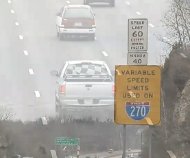
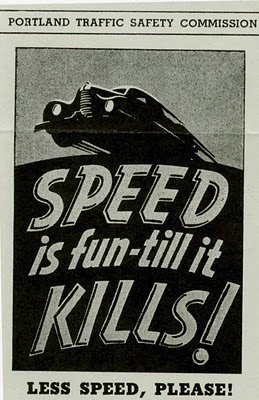


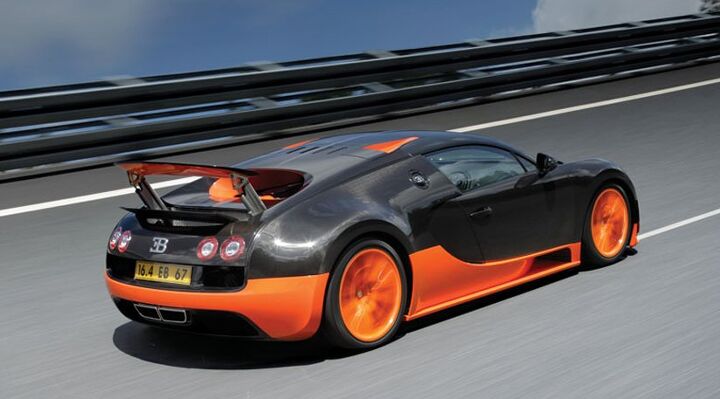
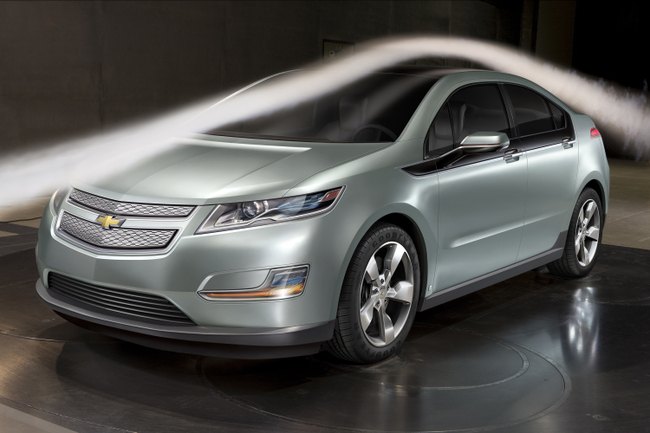
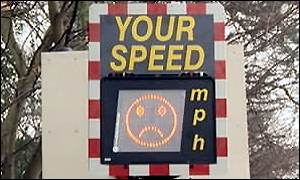

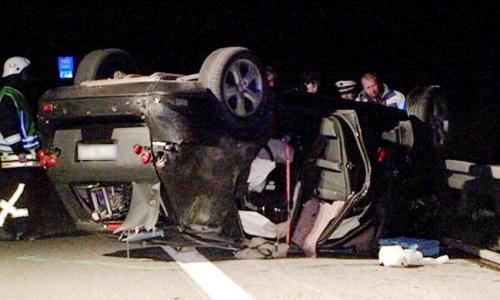

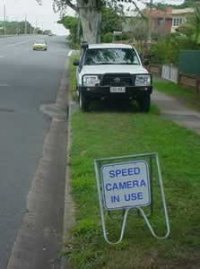
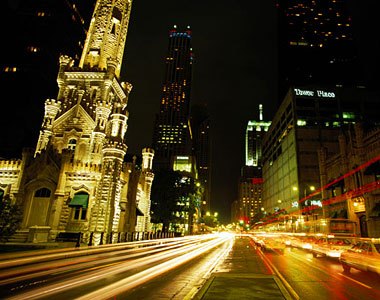












Recent Comments